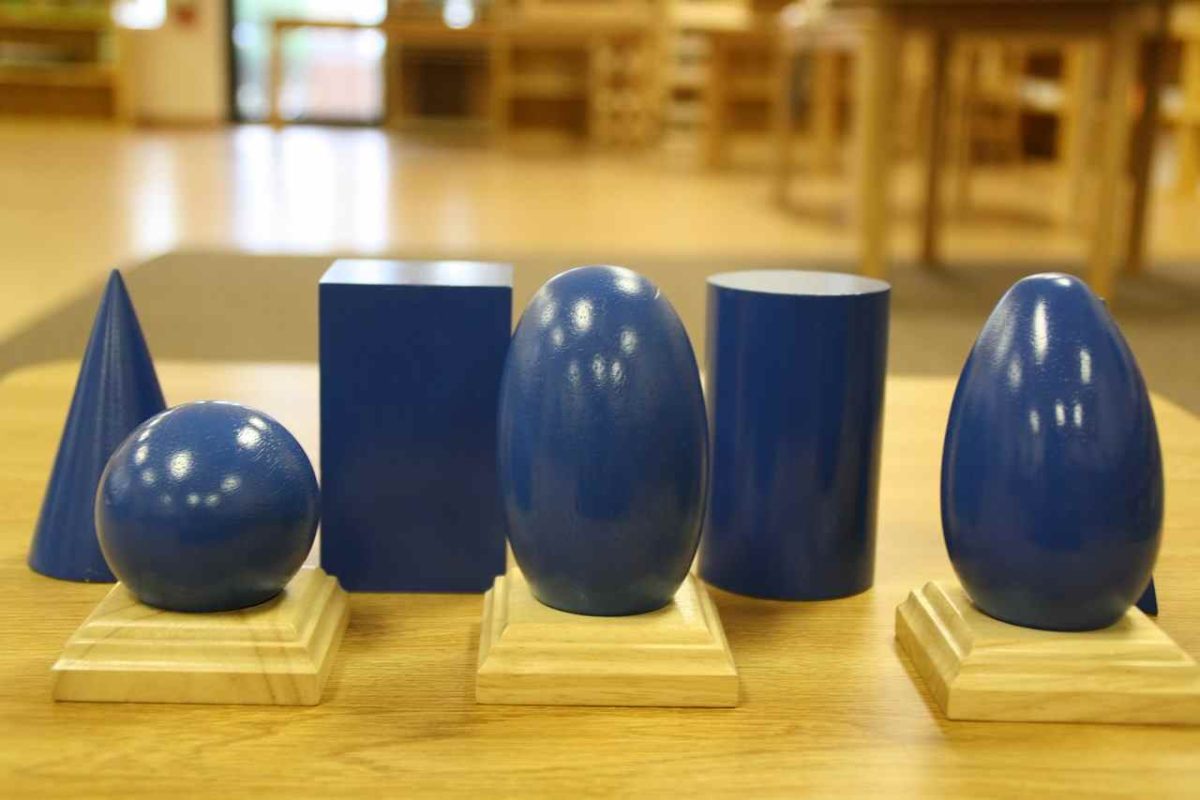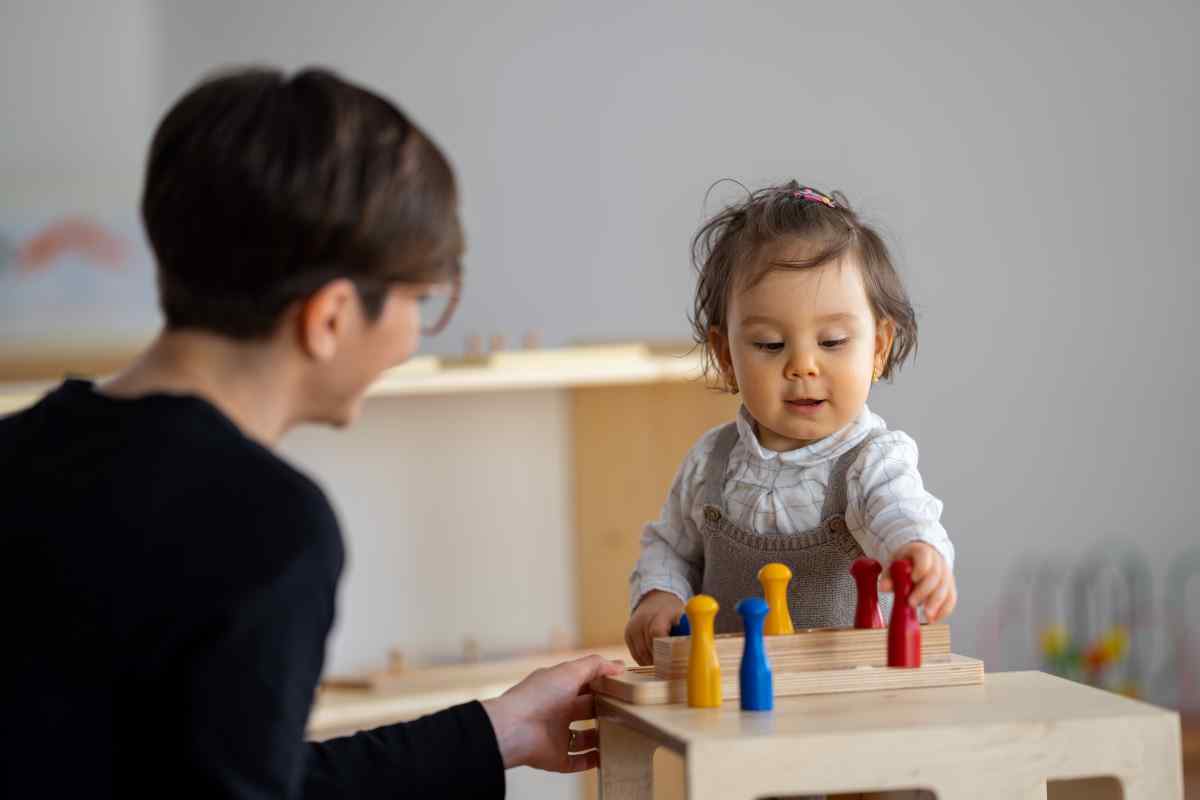Montessori education
Unlocking Excellence: Montessori Teachers and Education Explained
Table of Contents
Introduction
Montessori education has gained immense popularity over the past few decades for its innovative approach that focuses on nurturing a child’s natural inclination to learn. At the heart of the Montessori method are the teachers who facilitate self-directed learning and exploration using specialized techniques and materials. This article will provide a comprehensive look at Montessori teachers – their multifaceted roles, required qualifications, unique teaching methods, and lasting impact they have on their students. We will also compare Montessori vs traditional education approaches, and provide practical tips for parents and aspiring Montessori educators. By demystifying the world of Montessori teachers, this guide aims to showcase how they unlock excellence in every child.
The Role of Montessori Teachers
Montessori teachers play a profoundly different role compared to traditional classroom educators. Rather than being the primary source of information, Montessori teachers act as knowledgeable guides, observing each child closely to determine how to facilitate engaged learning experiences tailored to their interests and developmental stage.
Key roles performed by Montessori teachers include:
- Preparing the classroom environment – They thoughtfully organize Montessori materials and activities to enable independent learning and exploration.
- Observing and understanding students – Keen observation helps them determine each child’s readiness for new lessons and experiences.
- Individualizing instruction – Lessons are tailored one-on-one to each student’s learning style and pace.
- Fostering independence and self-discipline – Children are guided to make choices, problem-solve, and take ownership of their learning.
- Cultivating community – Classrooms promote collaboration while respecting each child’s space and freedom.
Montessori guides empower children to unlock their innate passion for learning. They refrain from constantly intervening or directing the learning process. This allows children to enjoy the thrill of independent discovery.
Qualifications and Training
To become certified Montessori teachers, individuals must complete extensive specialized training through accredited teacher education programs. Common requirements include:
- Bachelor’s degree
- 1,000+ hours of training over 9-12 months
- 350+ hours of supervised teaching practice
- Montessori theory and philosophy coursework
- Hands-on lessons with Montessori learning materials
- Child psychology and development studies
- Teaching practicum
- Examinations and observation assessments
In addition to formal training, Montessori educators must be committed to pursuing regular professional development and learning new techniques through workshops, conferences, and continuing education. Patience, empathy, creativity, and adaptability are also key qualities of successful Montessori teachers.
| Type | Duration | Components |
|---|---|---|
| Infant/Toddler | 12 months | Child development, care routines, sensory enrichment activities |
| Early Childhood | 12 months | Curriculum for ages 3-6, Montessori materials for sensory, math, language, cultural studies |
| Lower Elementary | 9 months | Curriculum for ages 6-9, integration of Montessori materials across disciplines |
| Upper Elementary | 9 months | Curriculum for ages 9-12, cosmic education, experiential learning |
Table 1: Overview of common Montessori teacher training programs

Montessori Teaching Methods
Montessori classrooms are specially designed to facilitate self-directed learning. Key aspects include:
Multi-age classrooms – Students across 3-year age spans learn together enabling older role models and peer tutoring.
Hands-on materials – Montessori materials allow abstract concepts to be understood concretely through manipulation and experimentation. Popular examples include:
- Pink tower for size discrimination
- Red rods for number concepts
- Metal insets for writing readiness
Child-sized environments – Chairs, tables, shelves are sized for children to access materials independently and take ownership of their workspace.
Uninterrupted work time – Long blocks of time (3+ hours) enable absorption in meaningful projects that build concentration and self-discipline.
Guided discovery – Teachers presenting lessons sparingly and only when children show readiness. Children explore concepts guided by their innate interest and curiosity.
Socio-emotional development – Mixed age groups foster leadership, mentoring, and conflict resolution skills. Children are empowered to be active community contributors.
This student-centered approach tailored to each child yields remarkable outcomes. Montessori students often display advanced abilities compared to traditionally educated children.
Montessori vs. Traditional Education
While both aim to nurture children, Montessori and traditional education differ significantly in their core principles:
| Montessori | Traditional |
|---|---|
| Student-driven | Teacher-driven |
| Uninterrupted blocks of work time | Set class schedules |
| Multi-age classrooms | Same-age classrooms |
| Self-correcting materials | Heavy teacher direction |
| Individualized pace | Standardized curriculum |
| Intrinsic motivation | Extrinsic rewards like grades |
Research confirms benefits of the Montessori approach:
- Enhanced social skills, self-discipline, love of learning
- Better executive function
- Higher achievement motivation
Montessori education develops the whole child – key strengths like independence, focus, leadership, and prosocial skills flourish.
Parent-Teacher Collaboration
Consistent parent-teacher communication is vital for student success in Montessori programs. Strategies include:
- Parent-teacher conferences – Scheduled discussions to share insights about child’s development.
- Observation – Parents can arrange to observe their child engaging in the prepared environment.
- Progress reports – Periodic reports detailing child’s learning across academic, social, and life skills.
- Work folders – Collections of child’s work samples providing deeper insight into learning.
- Parent education events – Workshops explaining Montessori principles help parents understand their child’s experience.
When parents partner closely with Montessori guides, children benefit tremendously. A unified approach cultivates consistency and nurtures the unique needs of each child.

Nurturing Qualities of Montessori Teachers
In addition to specialized training, Montessori teachers must cultivate core qualities and sensibilities:
Keen observers – Their ability to carefully observe children enables them to create responsive learning experiences.
Patient and calm – They never rush children, allowing the learning process to unfold based on internal timetables.
Creative problem-solvers – They adapt their approach to unlock potential and overcome obstacles for each unique child.
Passionate mentors – Their warmth, care, and high expectations inspire children to reach their highest selves.
Humble and self-aware – They understand their role is not to be the center of the classroom but rather to prepare the environment and step back.
Lifelong learners – They continue honing their expertise through training, research, conferences to give students their best.
Truly inspirational Montessori educators change lives by nurturing self-directed learning and empowering children to flourish.
Montessori Teacher Impact
The influence of gifted Montessori teachers stays with their students for decades. Alums often share how their teachers sparked curiosity and equipped them with the tools to unlock their potential.
Famous individuals impacted by Montessori education include:
- Jeff Bezos, Amazon founder
- Larry Page and Sergei Brin, Google co-founders
- Jimmy Wales, Wikipedia founder
- Julia Child, celebrity chef
Beyond individual success stories, research substantiates the long-term benefits of Montessori education:
- Higher high school graduation rates
- Increased community service participation
- Better performance on standardized tests
- Enhanced executive function skills
The student-driven Montessori approach exemplifies education that unlocks human potential and creates global change makers.
How to Become a Montessori Teacher
Those feeling called to become Montessori teachers should follow these steps:
- Earn a bachelor’s degree – Any major is acceptable, though child development, education and psychology provide relevant background.
- Complete a teacher certification program – Choose from infant/toddler, early childhood, lower elementary, upper elementary credentials depending on desired age group.
- Get hands-on experience – Arrange to volunteer or intern at an accredited Montessori school. Observing teachers is invaluable.
- Pursue Montessori job opportunities – Many schools post teaching positions on sites like MontessoriPublic.org and AmericanMontessori.org.
- Continue professional development – Attend workshops and consider a Master’s degree to keep skills sharp as an educator.
With passion and dedication, aspiring Montessori teachers can positively impact children’s lives for decades to come.
The Future of Montessori Education
In recent years, Montessori principles have been increasingly integrated into mainstream educational settings beyond niche private schools. Growth trends include:
- Public Montessori schools, now 500+ in the US
- Montessori universal pre-K programs
- Montessori teacher training scholarships to increase access and diversity of educators
- Educational technology incorporating Montessori learning materials and concepts
While Montessori is expanding, challenges persist around teacher shortages and undersupply of high-fidelity Montessori programs. However, the student-driven approach continues gaining momentum as neuroscience and educational research reinforce its wisdom. The pivotal role of Montessori teachers will only grow in unlocking children’s remarkable potential.
Conclusion
This deep dive into Montessori teacher qualifications, specialized techniques, and lasting impact provides powerful insight into what sets them apart. Meticulous training and nurturing core qualities like patience and observation enable them to guide self-directed learning tailored to each child’s interests. Montessori cultivates independence, self-discipline and a lifelong love of learning – benefits that stay with students across their lives. For parents seeking an educational experience that unlocks their child’s innate excellence, Montessori teachers hold the key. Their transformative impact as guides and mentors merits far greater recognition and investment in cultivating these gifted educators.

FAQs
What is the role of a Montessori teacher?
Montessori teachers act as guides who facilitate self-directed learning by carefully preparing the classroom environment and lessons based on each child’s needs and developmental stage. Their role is to observe, understand, and nurture each student’s innate desire to learn.
What qualifications do Montessori teachers need?
Montessori teachers must complete extensive specialized training through accredited programs, which includes child psychology coursework, hands-on lessons with materials, supervised teaching practice, and examinations. They must hold a bachelor’s degree and Montessori teaching credential.
How do Montessori teachers differ from traditional teachers?
Montessori teachers follow the student rather than drive the curriculum. They promote independent learning through multi-age classrooms, long uninterrupted work periods, and student choice. Traditional teachers adhere to set lesson plans and standardized curricula.
What teaching methods do Montessori teachers use?
Key methods include multi-age classrooms, concrete Montessori learning materials, child-sized furniture, student-driven exploration, guided lessons based on observation, intrinsic motivation through freedom of choice.
How can I become a certified Montessori teacher?
Earn a bachelor’s degree first, then complete a 12-month Montessori teacher training program and teaching practicum. Programs offer infant/toddler, early childhood, elementary, and adolescent teaching credentials.
What qualities make a great Montessori teacher?
Excellent observation skills, deep patience, creativity, humility, passion for guiding children, and commitment to continuing education and professional development throughout their career.
References
https://amshq.org/Educators/Montessori-Careers/Become-a-Montessori-Educator
https://montessori-ami.org/about-montessori/montessori-educators
https://www.rasmussen.edu/degrees/education/blog/pros_cons_montessori_education/
https://www.childrensworkshopmontessori.org/the-role-of-the-montessori-teacher
https://www.montessori.org/becoming-a-montessori-teacher/
https://en.wikipedia.org/wiki/Montessori_education

